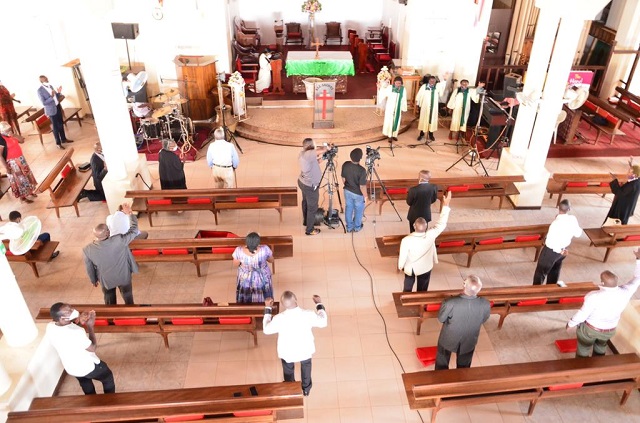
COMMENT | Gertrude Kamya Othieno | The institutionalisation of Christianity by the Council of Nicaea in AD 325 was a decisive moment in the faith’s history. What began as a diverse, decentralised movement based on Jesus’ teachings was transformed into a formalised state religion, primarily serving the Roman Empire’s political needs. The goal was to unify Christianity into a standardised doctrine that would reinforce the Empire’s authority and social control. This formalisation spread throughout Europe, and later to Africa, where it has morphed into various forms, including the modern “prosperity gospel.” This essay explores how Christianity was initially institutionalised for state control in Europe and examines its current manifestation in Africa, where churches have become heavily politicised and aligned with economic aspirations.
The Council of Nicaea and State Control
When Emperor Constantine convened the Council of Nicaea, it was a calculated move. By the early 4th century, Christianity had grown in influence, but its diverse interpretations posed a challenge to the Roman Empire’s cohesion. The council’s aim was to establish a unified doctrine that could stabilise the empire, aligning religious faith with political power.
The Nicene Creed emerged from the council, codifying core Christian beliefs, such as Christ’s divinity and the Holy Trinity. Beyond theological clarity, this allowed the Roman state to use Christianity as a tool for control. The Church began to preach obedience to earthly rulers as a religious duty, consolidating power and legitimising imperial authority.
In medieval Europe, this relationship between church and state deepened. The Church became a powerful institution, influencing both spiritual and political matters. It helped maintain the feudal system, upheld the divine right of kings, and shaped societal norms. This arrangement ensured that political power was sanctified, with rebellion against rulers equated to sin.
Prosperity Gospel in Africa: A New Form of Control?
In modern Africa, the evolution of Christianity has taken on new forms, notably the rise of the prosperity gospel, which teaches that material wealth and personal success are signs of God’s favour. This version of Christianity emphasises financial prosperity through faith, often downplaying spiritual or communal elements of the faith.
The prosperity gospel has become a dominant force in Africa, attracting large congregations and generating wealth for church leaders. While it offers hope of economic success, it is also deeply intertwined with political and economic realities. Many churches operate in regions where economic inequality is widespread, and the promise of wealth through faith provides a sense of hope for those abandoned by state institutions.
However, this form of Christianity has also been criticised for its political entanglement. In several African countries, churches have formed close alliances with political leaders, offering support in exchange for financial backing or protection. This echoes the early use of Christianity for political control but operates in a different context. Religious leaders wield significant political influence, shaping public opinion and, at times, policy.
Politicisation of Churches in Africa
The politicisation of churches in Africa extends beyond the prosperity gospel. Churches often serve dual roles as spiritual institutions and political actors. In many countries, religious leaders have direct access to government leaders and can mobilise large populations, making them key players in political processes.
This close relationship between churches and politics raises important questions about the role of faith in African society. While religion remains central to the lives of many, the increasing politicisation of churches risks undermining their spiritual mission. Rather than being spaces for worship and reflection, churches may become battlegrounds for political power and economic gain.
Conclusion
The institutionalisation of Christianity by the Council of Nicaea was fundamentally a political manoeuvre, designed to unify and control the Roman Empire. In Europe, Christianity became a powerful institution that reinforced political authority for centuries. In contemporary Africa, the faith has evolved, with the prosperity gospel and politicised churches becoming prevalent. While offering hope to many, these modern iterations of Christianity also raise concerns about the dangers of aligning religious institutions too closely with political and economic agendas. As Christianity continues to evolve in Africa, it is essential to reflect on whether its current forms serve the spiritual needs of the people or perpetuate systems of control.
*******
 Gertrude Kamya Othieno | Political Sociologist in Social Development (Alumna – London School of Economics/Political Science) | Email – gkothieno@gmail.com
Gertrude Kamya Othieno | Political Sociologist in Social Development (Alumna – London School of Economics/Political Science) | Email – gkothieno@gmail.com
 The Independent Uganda: You get the Truth we Pay the Price
The Independent Uganda: You get the Truth we Pay the Price




